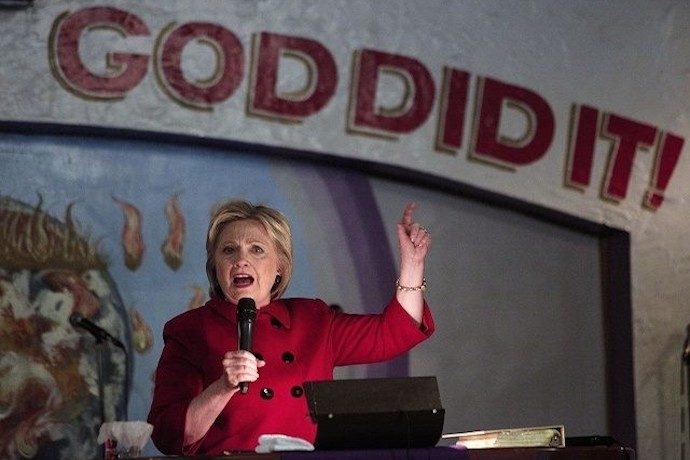A friend sends a link to this Michael Wear piece in the Atlantic, saying “I saw this and thought it must’ve been published just to piss you off specifically.” Well, mostly I just sigh these days, but good guess. Very good guess:
Democrats ignored broad swaths of religious America in the 2016 election campaign and the nation has suffered because of it. Yet calls for a recommitment to faith outreach—particularly to white and other conservative or moderate religious voters—have been met in some corners of liberal punditry with a response as common as it is unwarranted. Some quarters of the Democratic party would rather maintain rhetorical and ideological purity than win with a more inclusive coalition. For the sake of the country, the party must turn back to people of faith.
Let’s handle this Atrios-style. Religious voters should receive outreach, just like any other constituency. I’ll take Wear’s word for it that the Clinton campaign bungled this. That being said, many pieces of the “Dems must reclaim ‘people of faith!'” argument have never been clear to me.
Who is this strategy supposed to reach? Black voters don’t vote on social issues, and white voters who do don’t vote Democratic. Why should Democrats chase a segment of the electorate that’s aging, shrinking, and moving to the right, while ignoring seculars who are younger, growing, and vastly more aligned with party positions? Why should Democrats hedge on positions like abortion or LGBT freedoms that the vast majority of their constituency agree upon in favor of the framing of a tiny minority?
Either these are matters of basic liberty or they’re not. How is faith outreach more effective than registering new voters and pushing back on voting restrictions? In what sense did Little Sisters of the Poor have to provide birth control to its nuns?
And the list goes on. It seems obvious that Dems should reach out to religious voters, but the more critical that outreach is deemed, the more argle-bargle the reasoning becomes. While faith appeals might help peel off a few members of the Republican base, there’s no evidence that it will lead to a broad Democratic appeal, that it’s any more important than a solid economic platform, a charismatic candidate, or keeping the ferkakte Russians from meddling in American elections.



